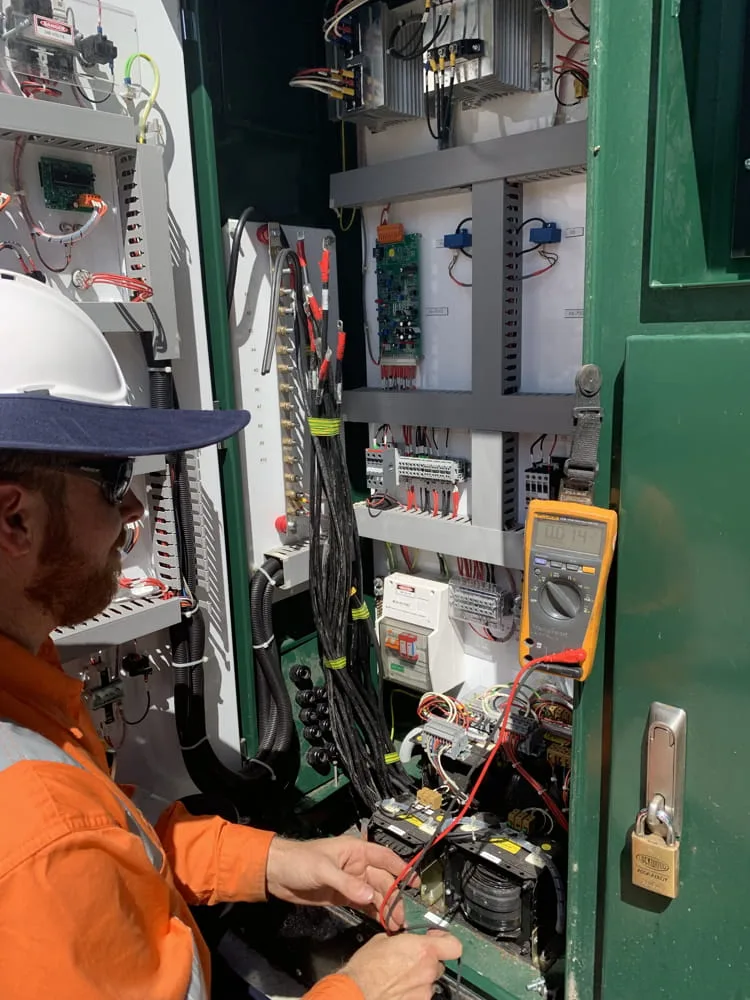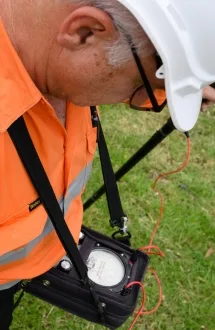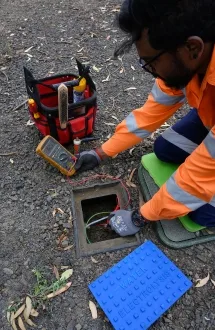


We work with asset owners to develop and undertake scheduled general maintenance and potential surveys. This provides our clients with rapid defect identification and rectification, ensuring assets are protected and owners meet their regulatory obligations. To overcome the challenges of monitoring infrastructure effected by stray current due to the operation of tram and train networks, we maintain a large fleet of dataloggers. This fleet also allows us to provide asset owners with area testing services as required by Energy Safe Victoria.
We have team members experienced in both Direct Current Voltage Gradient (DCVG) and Pearson (ACVG) coating defect surveys which can be carried out as part of scheduled monitoring or pre and post construction works. This information is critical, ensuring that any damage during adjacent works is identified and rectified. Long term monitoring of the coating condition, used in conjunction with potential survey data allows clients to manage the corrosion risks associated with their asset.
We can provide Earth Potential Rise (EPR) and Low Frequency Induction (LFI) investigation services in line with AS4853 - Electrical hazards on metallic pipelines.
EPR is the rise in electrical potential of the earth at a specific location caused by a flow of fault current in the grounding system of a nearby electrical installation like a power pole or kiosk. This causes a level of voltage in the soil and creates significant risk of electrocution for anyone working on the pipeline or nearby equipment.
LFI in metal pipelines is a form of electromagnetic interference that occurs when high voltage transmission lines are run in parallel with underground metal pipelines. Current flowing through the pipeline produces a voltage, impacting the cathodic protection of the pipeline and leading to a higher risk of corrosion.
Utilising specialised software and our internal electrical engineering capabilities we can deliver assessment reports that provide critical electrical safety compliance information to asset owners to ensure the safe continued operation of their infrastructure.
Site Designed and Built By Section Media